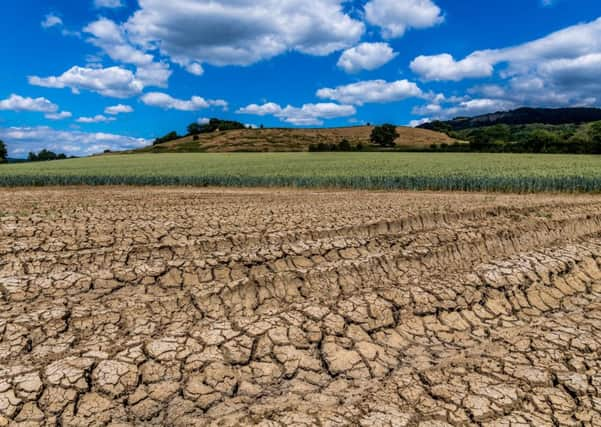Dry weather means first crops in Yorkshire are cut early


In Yorkshire, the reliable warmth and a lack of rain has been a blessing in that it has allowed farmers to gather in the hay without risk of wet weather damage, but there is still cause for concern.
Commenting on the harvest season so far, Amy Morrison, a combinable crops expert at the regional branch of the National Farmers’ Union (NFU), said the lack of rain was having an impact
Advertisement
Hide AdAdvertisement
Hide Ad“Yields are really varied. So far only the barley crops have been harvested and a week or two earlier than usual. We getting reports of yields from three tonnes up to 4.5 tonnes on heavy land. Overall the feeling is that the harvest is average at best at the moment.”
For now, similarly warm conditions across continental Europe and Russia have impacted on yields too and that has helped keep crop prices up, Ms Morrison said.
“What happens when you have low yields it that you don’t have much to sell but at the moment prices are firm. They’re looking good.”
In terms of forage - feed for animals derived from crops - the situation is less encouraging, Ms Morrison warned.
Advertisement
Hide AdAdvertisement
Hide Ad“After a very long winter a lot of reserves were used up. Some have managed to get a second cut of silage since then but grass growth has not been good and farmers are now having to start feeding their livestock from their supplies.”
Farmers dipping into their stocks are being advised to plan ahead with some likely to exhaust what silage they have over the coming months.
The NFU runs an online Fodder Bank, a free service that helps its farmer members find cattle feed and animal bedding or allows them to sell any surplus.